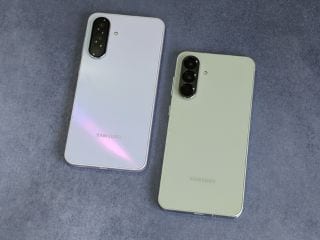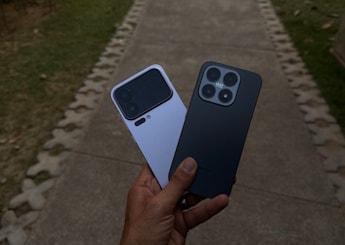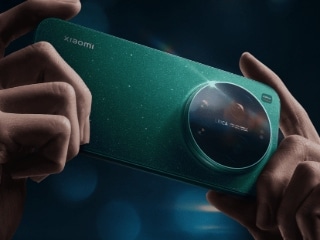- Home
- Science
- Science News
- Researchers Develop Grain Sized Robots Capable of Carrying Multiple Drugs
Researchers Develop Grain-Sized Robots Capable of Carrying Multiple Drugs
NTU Singapore's tiny robots deliver multiple drugs precisely, reducing side effects through targeted, noninvasive treatment.

Photo Credit: YouTube/ NTU Singapore
NTU researchers created tiny robots that deliver drugs using magnetic fields.
Researchers at Singapore's Nanyang Technological University (NTU) have developed a highly innovative drug delivery solution: a grain-sized magnetically-guided robot that is capable of delivering multiple drugs directly to precise areas within the body. This advancement, led by NTU's School of Mechanical and Aerospace Engineering, could soon transform medical treatments by providing highly controlled and noninvasive medication delivery.
Advanced Materials Enabling Precision Navigation
The micro-robot's construction from biocompatible polymers and magnetic microparticles allows it to move seamlessly through narrow, complex regions of the body. It is designed with precision in mind. The robot can operate smoothly across various surfaces. This makes it ideal for delivering medication to hard-to-reach areas. Testing has now shown that these robots operate at speeds between 0.30 mm and 16.5 mm per second. This helps efficiently transporting and releasing different drugs in controlled amounts, even under challenging conditions.
From Science Fiction to Medical Reality
The research team was Inspired by the classic sci-fi film Fantastic Voyage. They aimed to bring this concept into medical reality. Assistant Professor Lum Guo Zhan, leading the project, said that this approach might eventually overshadow traditional drug methods, offering a pathway to precise drug delivery exactly where it's needed, which could notably reduce side effects.
Transforming Minimally Invasive Procedures
Dr. Yeo Leong Litt Leonard who is a neurosurgeon at Singapore's National University Hospital has highlighted how such technology could soon replace current tools for minimally invasive procedures. Instead of relying on catheters and wires, these robots may one day autonomously navigate blood vessels, safely delivering drugs over extended periods.
Next Steps for the Future of Healthcare
The NTU team has planned testing further on these micro-robots in systems that closely resemble human physiology. Their long-term vision is to adapt the technology for specific medical conditions, including various types of cancer. As this technology progresses, it may usher in a new era in healthcare, where small-scale robots offer highly precise, noninvasive solutions for challenging medical issues.
Get your daily dose of tech news, reviews, and insights, in under 80 characters on Gadgets 360 Turbo. Connect with fellow tech lovers on our Forum. Follow us on X, Facebook, WhatsApp, Threads and Google News for instant updates. Catch all the action on our YouTube channel.
Related Stories
- Samsung Galaxy Unpacked 2026
- iPhone 17 Pro Max
- ChatGPT
- iOS 26
- Laptop Under 50000
- Smartwatch Under 10000
- Apple Vision Pro
- Oneplus 12
- OnePlus Nord CE 3 Lite 5G
- iPhone 13
- Xiaomi 14 Pro
- Oppo Find N3
- Tecno Spark Go (2023)
- Realme V30
- Best Phones Under 25000
- Samsung Galaxy S24 Series
- Cryptocurrency
- iQoo 12
- Samsung Galaxy S24 Ultra
- Giottus
- Samsung Galaxy Z Flip 5
- Apple 'Scary Fast'
- Housefull 5
- GoPro Hero 12 Black Review
- Invincible Season 2
- JioGlass
- HD Ready TV
- Latest Mobile Phones
- Compare Phones
- iQOO 15R
- Realme P4 Lite
- Vivo V70
- Vivo V70 Elite
- Google Pixel 10a
- Tecno Camon 50
- Tecno Camon 50 Pro
- Lava Bold N2
- LG Gram 14 (2026)
- Asus Vivobook 16 (M1605NAQ)
- Infinix Xpad 30E
- Brave Ark 2-in-1
- AI+ Wearbuds
- AI+ NovaWatch Kids 4G
- Xiaomi QLED TV X Pro 75
- Haier H5E Series
- Asus ROG Ally
- Nintendo Switch Lite
- Haier 1.6 Ton 5 Star Inverter Split AC (HSU19G-MZAID5BN-INV)
- Haier 1.6 Ton 5 Star Inverter Split AC (HSU19G-MZAIM5BN-INV)
-
 Samsung Reportedly Hikes Prices for Galaxy A56 5G, A36 5G, and F17 5G in India; New Rates Inside
Samsung Reportedly Hikes Prices for Galaxy A56 5G, A36 5G, and F17 5G in India; New Rates Inside
-
 Xiaomi HyperOS 3.1 Leak Reveals iOS Bridge Feature With Support for iPhone and AirPods Integration
Xiaomi HyperOS 3.1 Leak Reveals iOS Bridge Feature With Support for iPhone and AirPods Integration
-
 Xiaomi's Leica Leitzphone Surfaces in Hands-on Images Ahead of Global Launch
Xiaomi's Leica Leitzphone Surfaces in Hands-on Images Ahead of Global Launch
-
 OnePlus 16 to Sport Significantly Thinner Bezels Than OnePlus 15, Won't Feature Active Cooling, Tipster Claims
OnePlus 16 to Sport Significantly Thinner Bezels Than OnePlus 15, Won't Feature Active Cooling, Tipster Claims










